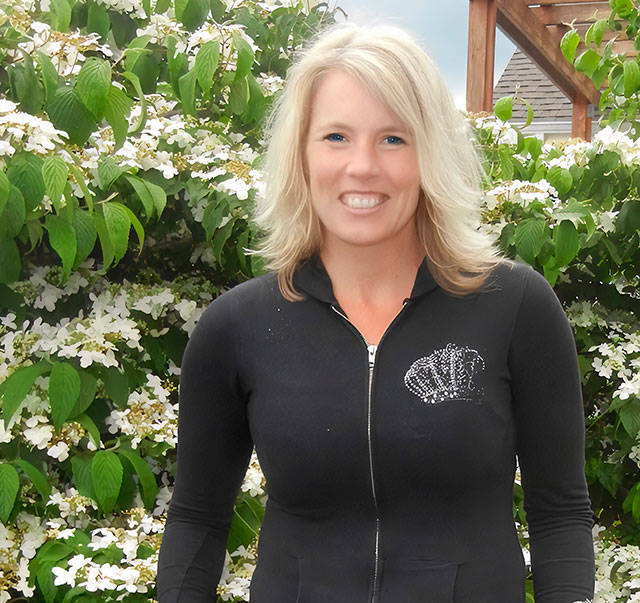I love living in Enumclaw. Small town parades. Well-attended high school games. Fabulous community service opportunities, home-town pride and a plethora of outdoor activities are just a few of the things which make this a wonderful place to live. Recently I’ve been reminded, however, we can do a better job of making it a more welcoming place for everyone.
Last week, I watched an elderly woman carefully placing her groceries in her car. The loud horn and vile language from the man in back of us was directed equally at her slow pace, and my willingness to patiently wait for her.
On a separate recent occasion, I witnessed two groups; one wearing masks, the other protesting the wearing of masks, engage in a verbal, no-prisoners-taken battle of loud, un-redacted insults. Each side conveyed, in no uncertain terms, the other was unwelcome in our community, country and world.
Finally, a few weeks ago in a local park, a boy was verbally assaulted by a high schooler. The weapon of choice, the “N” word, was hurled randomly, with accompanying vulgar rhetoric, at the child. This attack was witnessed silently by others, who said nothing.
These incidents have replayed over and over in my head. I’ve thought about the power of words. I’ve thought about the message of silence. I am no stranger to discrimination and disparate treatment. For two decades as an attorney, I sat on the front row of discriminatory interactions based on age, race, religion, gender, disability and other class distinctions. I have seen hatred in all its forms. For some reason, seeing the increase of unkind behavior in my own community hits particularly close to home.
One thing which separates those who have freedom from those who do not is the ability to choose words. Our language enables us to define who we are and what we believe. We do not have to recite a party line. We do not have to chant rote words or heavily censor our expressions for fear of reprisal. It also means our words come with an accompanying responsibility. Our word choice matters. We have the power to lift or tear down. To build or destroy.
On each of these occasions, words were used to wound others in a manner meant to leave a lasting scar. Worse still, all the individuals who overheard these encounters had a choice; to remain silent, or use their words to heal and stand for those being targeted. To stand up for that which is right.
In each of these moments, with terribly offensive words hanging in the air, opportunities were missed. The speakers’ friends had the opportunity to say: “Even though we stand next to these people, we do not stand with them.” Onlookers had the opportunity to recognize the value and humanity of the victims. There were missed opportunities to stand and say “not in our town” and “not on my watch.”
Words can destroy dreams or inspire legacies. Decades ago, brimming with confidence after winning the regional championship at our elementary school volleyball tournament, I accepted a casual invitation to join an open game at a local outdoor court. As the teams assembled, I found myself on a side with all grown men. Despite the fact that my skill set was about average for the team, my diminutive stature and age made me the target of frustrations for missed plays.
One particularly competitive man shoved me aside on a play, hit the ball, and as it went directly into the net yelled, “Get out of my way! You don’t belong here.” I took his words to heart and slunk off the court, determined to never return. As I headed across the field, I heard footsteps behind me. A middle-aged Polynesian man, the best player on the court, had followed me. He had a ball in his hands and threw it to me. The stranger and I passed the ball as the game continued across the field.
After about 20 minutes of his gentle instruction, he invited me to follow him. As he approached the court, everyone clamored for him to join their team. When he beckoned for me to follow him onto the court, I hesitated, catching the glaring gaze of the man who had sent me from the game. My new Polynesian friend put his hand on my shoulder and said loudly, “She’s with me!”
Those three words changed the trajectory of my volleyball career. I heard them when I went on the varsity junior high court as a mere seventh-grader. I remembered them at tournaments and leagues when the gazes of opposing competitors made me wonder if I belonged. The impact even extended to other areas of my life: As the youngest new law student in a class of much more experienced peers, in my first courtroom experience, and as a conference speaker to hundreds of other professionals.
As I look at the words “Welcome to Enumclaw,” I see an open-ended invitation. I desperately want to hug the elderly woman and gather the boy in my arms and say, “They’re with me!” I want to reach out and embrace the mask wearers, the anti-maskers and all others who feel like they don’t belong and assure them they do. That we are better because of all of them.
Our town is beautiful because of each individual that contributes to its tapestry. Our ages, colors, opinions, diverse experiences and unique contributions make our community richer and stronger. Defending the position that all are “Welcome” in Enumclaw falls on our collective shoulders. We have freedom to use our words to gently remind everyone who would slam the door on inclusion that “they are with us.” Sometimes a few courageous words can change a life. Perhaps it will be our own.


